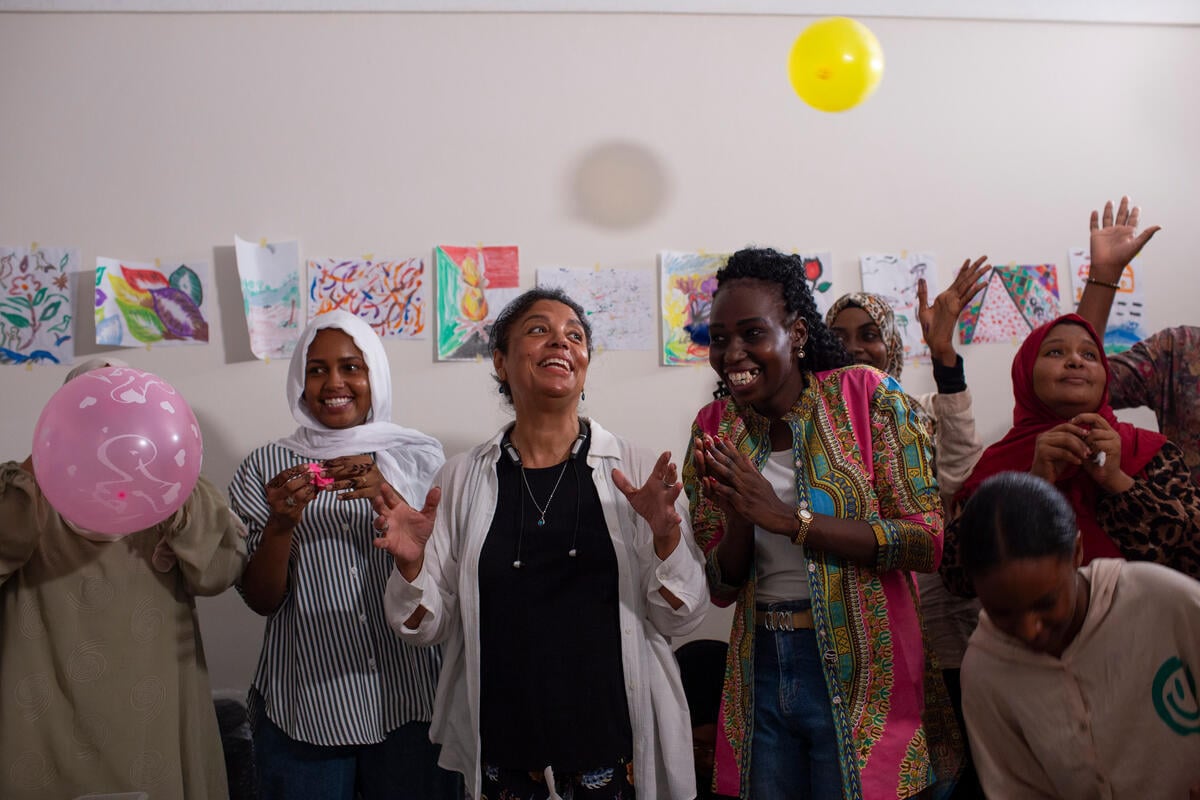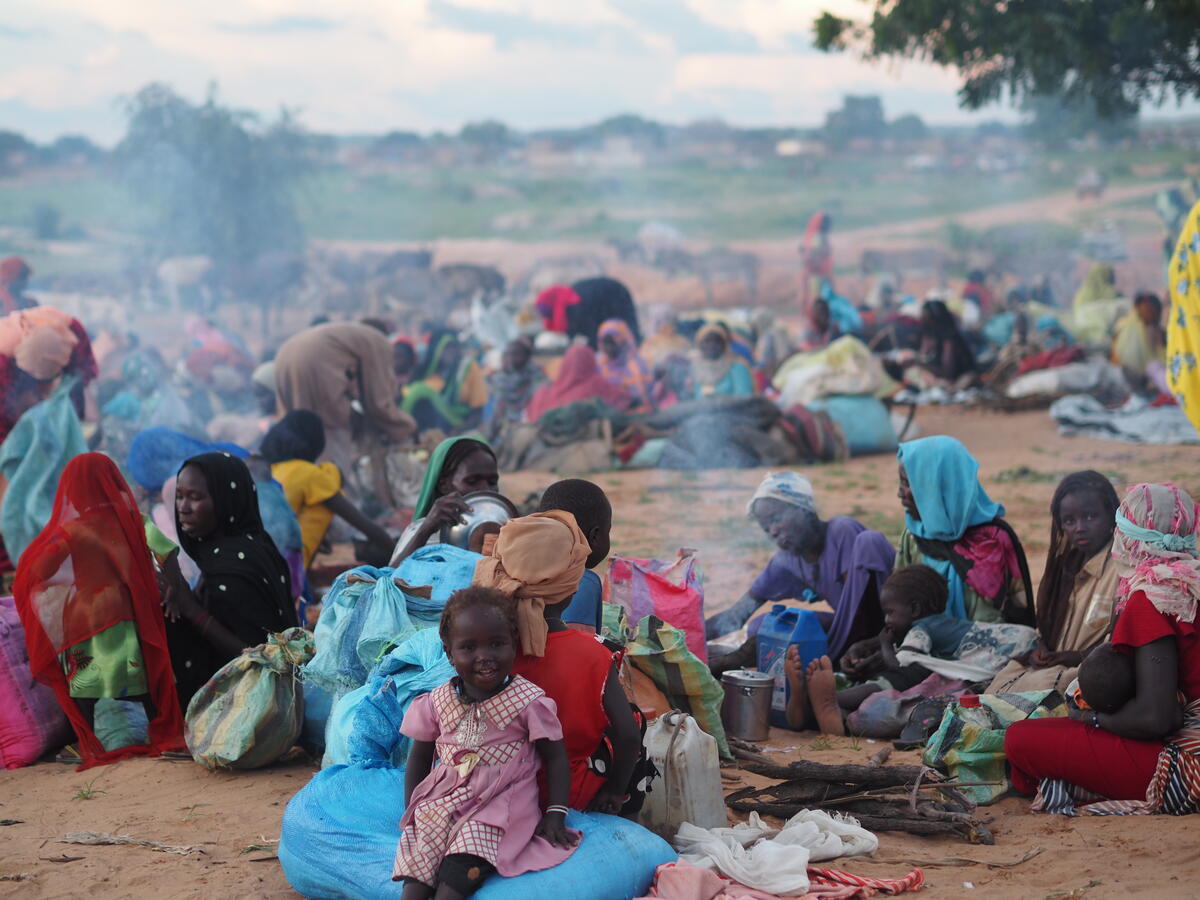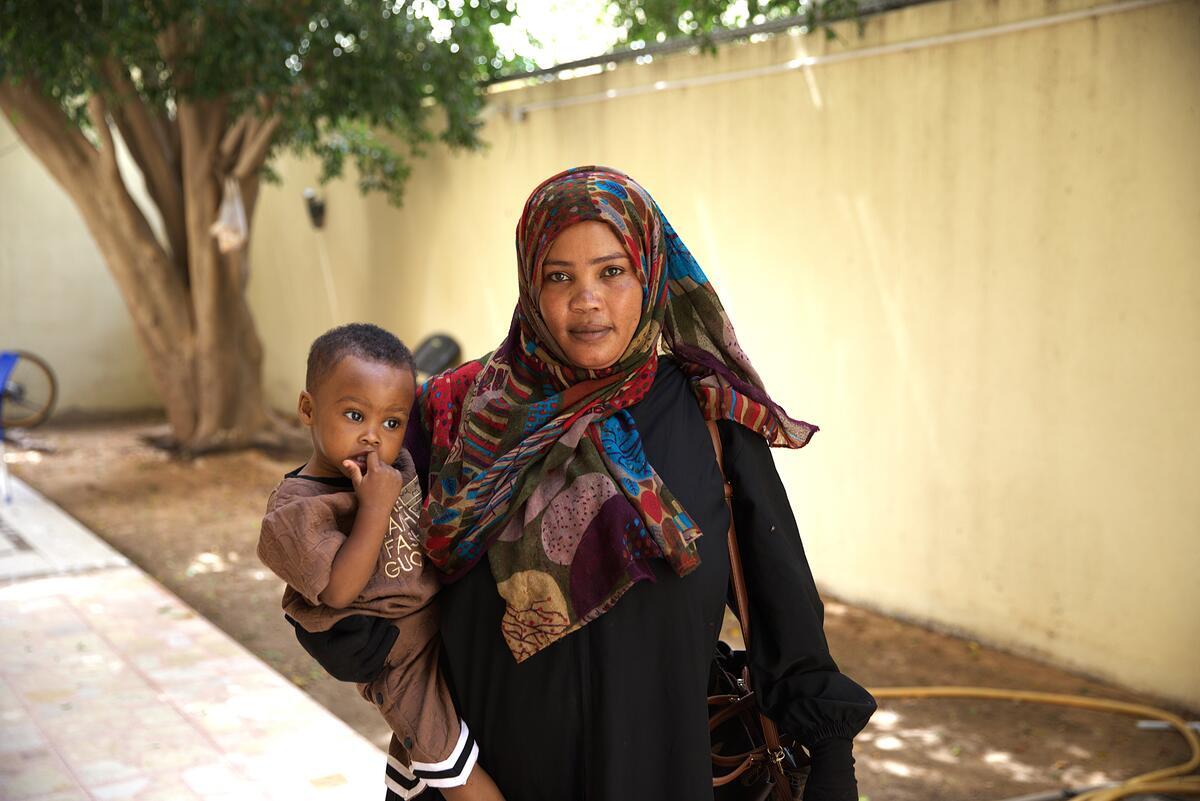Update on fire in Chad's Goz Amer refugee camp
Update on fire in Chad's Goz Amer refugee camp
UNHCR has distributed mats, blankets, kitchen sets and jerry cans to some 2,130 people left homeless on Friday when fire spread through part of the Goz Amer refugee camp in eastern Chad.
The 2,130 refugees from neighbouring Sudan's Darfur region are temporarily housed in three schools at the camp while we await the arrival of family tents. The tents will be distributed in the next few days.
We hope to rebuild the destroyed section of the camp - one of 24 housing sectors in the sprawling Goz Amer site - using more solid material than the straw and mud that most shelters are made from. UNHCR has sent a site planner to Goz Amer, which holds a total of 20,500 refugees.
As of yesterday (Monday), 24 refugees had been admitted to the camp's health centre with various burn injuries - most of them slight. Two women who were being kept under surveillance with first-degree burns.
At least 15 severely traumatized refugees are receiving counselling from a UNHCR partner organisation in the camp. Staff report that some of those made homeless are suffering from psychological trauma because the blaze rekindled memories of the janjaweed attacks on their villages, including house torching, that forced them to flee from Darfur to Chad in 2003 and 2004.
The "I" block sector of the camp is now just a smouldering pile of ashes. Two other blocks had been partly damaged during Friday's blaze, whose cause was believed to be an untended cooking fire which spread rapidly, fanned by high winds. It was contained and put out by refugees and aid workers using blankets, extinguishers and water.
Goz Amer, about 40 kilometres from Goz Beida and 70 km from the Sudanese border, is the southernmost of 12 UNHCR-run camps along a 600-km stretch of the Chad-Sudan border housing some 250,000 Darfur refugees. UNHCR also helps some 180,000 internally displaced Chadians in the east. The remoteness of the vast and sometimes insecure area makes it one of UNHCR's most logistically challenging operations anywhere.
The UN World Food Programme has agreed to distribute an extra one-month food ration to the 270 affected families.









